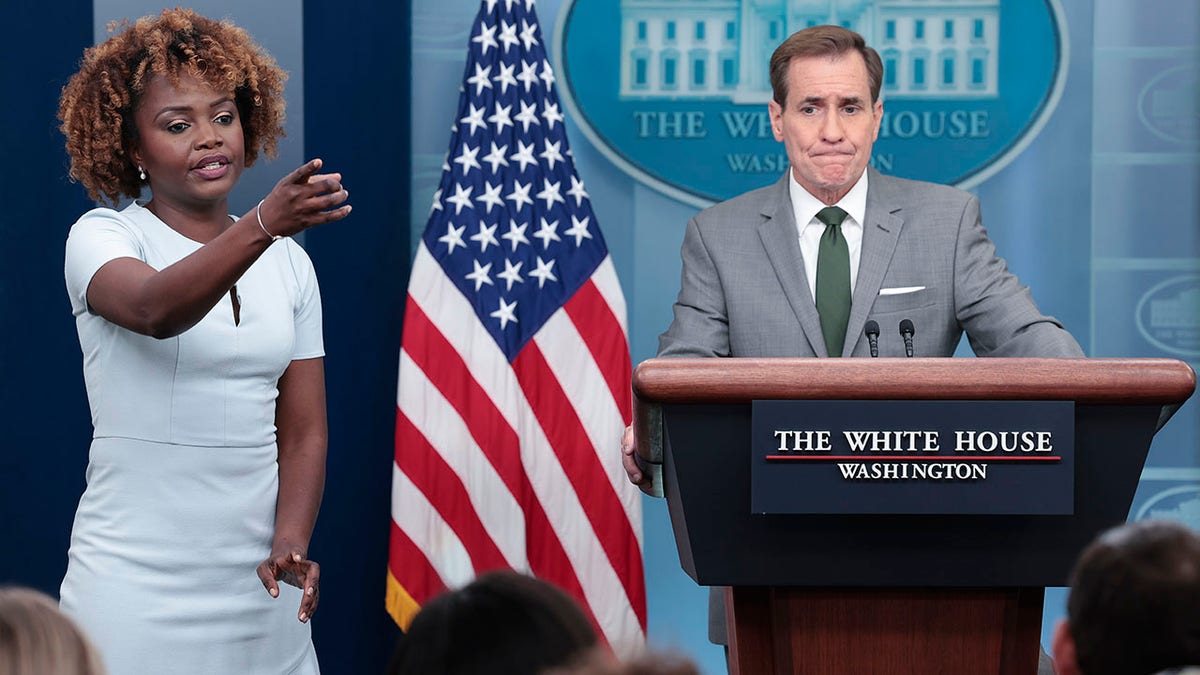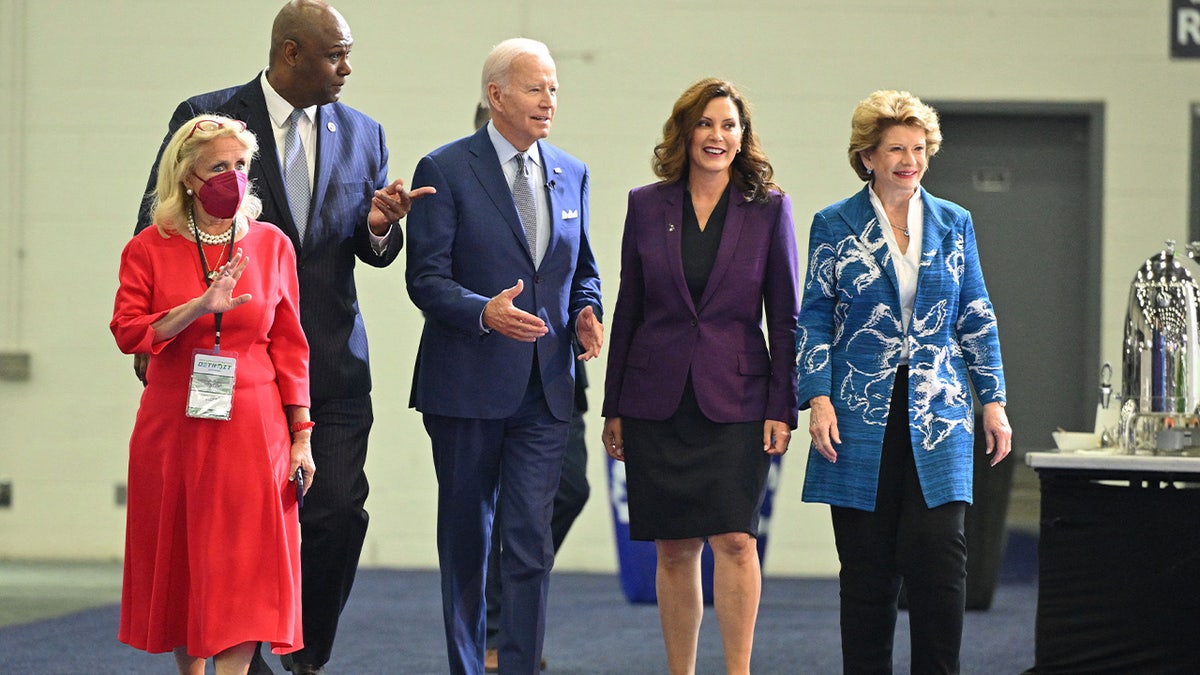Israel to begin ‘4-hour pauses’ of military operations in northern Gaza, the White House says

Israel is expected to begin implementing '4-hour pauses' of military operations in areas of northern Gaza each day, beginning Thursday, the White House said.
White House National Security Council Coordinator for Strategic Communications John Kirby said Israel will begin the implementation of the pauses on Thursday, and will give civilians three hours notice ahead of the pause.
The announcement comes after President Biden asked Israeli Prime Minister Benjamin Netanyahu to institute the daily pauses during a call on Monday in order to ensure humanitarian aid is able to pass through and to allow for civilians to take harbor or flee.
'We understand that Israel will begin to implement 4-hour pauses in areas of northern Gaza each day, with an announcement to be made 3 hours beforehand,' Kirby said Thursday.
'We have been told by the Israelis that there will be no military operations in these areas over the duration of the pause, and that this process is starting today,' he said.
Kirby also said Israel was opening a second corridor for civilians to flee the areas that are the current focus of its military campaign against Hamas.
Israeli Prime Minister Benjamin Netanyahu has rejected calls for a cease-fire in Gaza unless hostages are released by Hamas, but said during an interview this week that he would consider 'tactical little pauses.'
Kirby told reporters Thursday that pauses could be useful in 'getting all 239 hostages back with their families to include the less than 10 Americans that we know are being held. So if we can get all the hostages out, that’s a nice finite goal.'
'Humanitarian pauses can be useful in the transfer process,' he added.
During an interview with ABC News on Monday, Netanyahu said Israel agreed that it needs to 'provide humanitarian assistance' — something he said Israel is doing and coordinating with the United States.
'We’ll do whatever we can. We don’t want to give Hamas the opportunity to endanger our soldiers. We saw that until we started the ground action, there was no pressure on them to release hostages,' he said. 'What we see if the minute we started the ground action, there is pressure.'
'The President himself has said that a cease-fire would be a surrender to Hamas, would be a victory for Hamas and you would no more have it than you would have a cease-fire after the al Qaeda bombings of the World Trade Center,' Netanyahu said during the interview. 'There will be no cease-fire, no general cease-fire, in Gaza without the release of our hostages.'
Netanyahu said, however, that 'as far as tactical, little pauses, an hour here, an hour there, we’ve had them before. I suppose we’ll check the circumstances in order to enable good, humanitarian goods to come in or our hostages, individual hostages to leave, but I don’t think there’s going to be a general cease-fire.'
Netanyahu added that 'every civilian lost is a tragedy, every civilian life lost is a tragedy.'
'We’re fighting an enemy that is particularly brutal,' he said. 'They’re using their civilians as human shields, and while we’re asking the Palestinian civilian population to leave the war zone, they’re preventing them at gunpoint. They’re using them as human shields.'
Since the ground offensive in Gaza began over a week ago, at least 30 IDF troops have been killed, in addition to the more than 1,400 people killed in Israel – most of them in the Oct. 7 Hamas attack that prompted the fighting. As of Monday morning, there have also been at least 242 hostages taken from Israel into Gaza.
The Associated Press contributed to this report.




